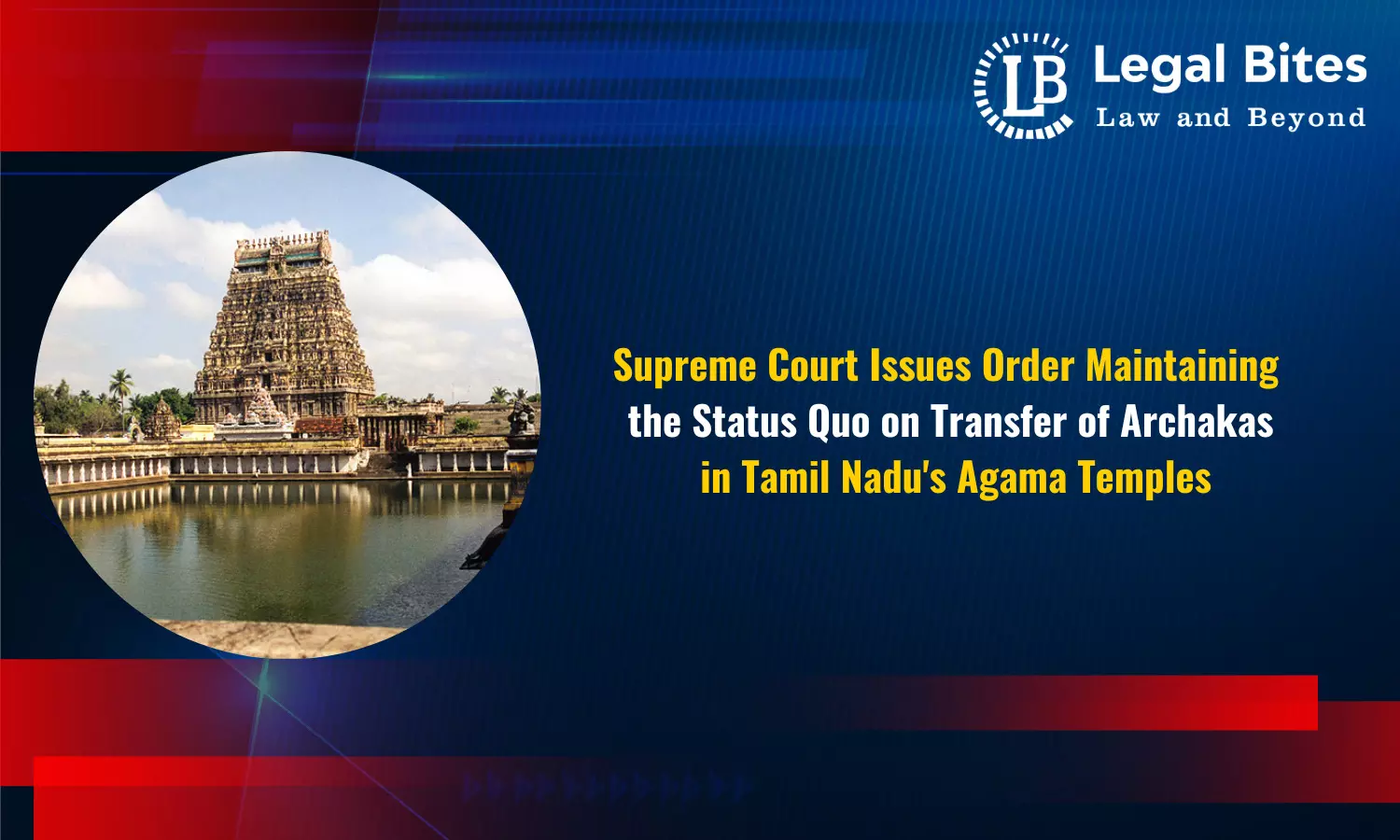Supreme Court Issues Order Maintaining the Status Quo on Transfer of Archakas in Tamil Nadu's Agama Temples
The Supreme Court of India has issued a directive to the Tamil Nadu Government, ordering the maintenance of the status quo regarding the transfer of temple priests.

Supreme Court Issues Order Maintaining the Status Quo on Transfer of Archakas in Tamil Nadu's Agama Temples
In a significant legal development, the Supreme Court of India has issued a directive to the Tamil Nadu government, ordering the maintenance of the status quo regarding the transfer of temple priests, commonly referred to as Archakas, in Agama temples across the state. This directive was issued by a bench comprising Justices AS Bopanna and MM Sundresh, who further adjourned the matter for a period of three weeks.
The court's directive is clear in its instruction:
"In the meantime, the status quo relating to the Archakaship in the Agamic temples in question shall be continued in the same manner until further orders are made."
This legal matter had initially come to the Supreme Court's attention on August 25, prompting the court to request a response from the Tamil Nadu Government. The case originated from a temple trust that had filed a plea, highlighting several issues related to temple governance and the appointment of suitable individuals to oversee temple affairs.
One of the key grievances raised in the plea concerned the terms and conditions governing the appointment of 'fit persons' or executive officers responsible for managing temple affairs in situations where elected trustees were absent. The guidelines pertaining to these matters had been established in a previous ruling by the Madras High Court, dated August of the previous year.
The Madras High Court ruling had significant implications. It affirmed that the appointment of Archakas in Agama temples should be guided by the principles laid out in the Agamas themselves, rather than being subject to the Tamil Nadu Hindu Religious Institutions Employees (Conditions of Service) Rules, 2020.
Additionally, the High Court's order stated that transfers of Archakas would only be permissible if the Archaka in question was being transferred from a temple governed by the same Agama traditions as the destination temple.
Concerning the appointment of fit persons or executive officers to manage temple affairs in the absence of elected trustees, the Madras High Court outlined specific conditions. It emphasized that such appointments could only be made under limited circumstances. The High Court recognized that while the right to appoint Archakas rested with the trustees, it was essential to consider situations where trustees were unavailable or where circumstances warranted the appointment of a fit person to carry out trustee responsibilities.
This High Court ruling has now been challenged before the Supreme Court, leading to the recent directive that maintains the status quo until further orders are issued. The temple trust that initiated the case argued that the transfer terms for Archakas should be modified to account for the unique customs and practices of each temple.
Furthermore, there was an expressed concern that the appointment of executive officers or fit persons might result in these individuals assuming their roles for an extended period without taking steps to fill the vacant positions on the board of trustees.
In this legal battle, senior advocates Guru Krishna Kumar and P Valliappan, along with a team of advocates, represented the temple trust, while advocates D Kumaran, Sheikh S Kalia, and Deepa S represented the Tamil Nadu government. This case highlights the intricate legal and cultural aspects surrounding temple governance in the state of Tamil Nadu and the ongoing efforts to ensure fair and appropriate practices in the management of Agama temples.

